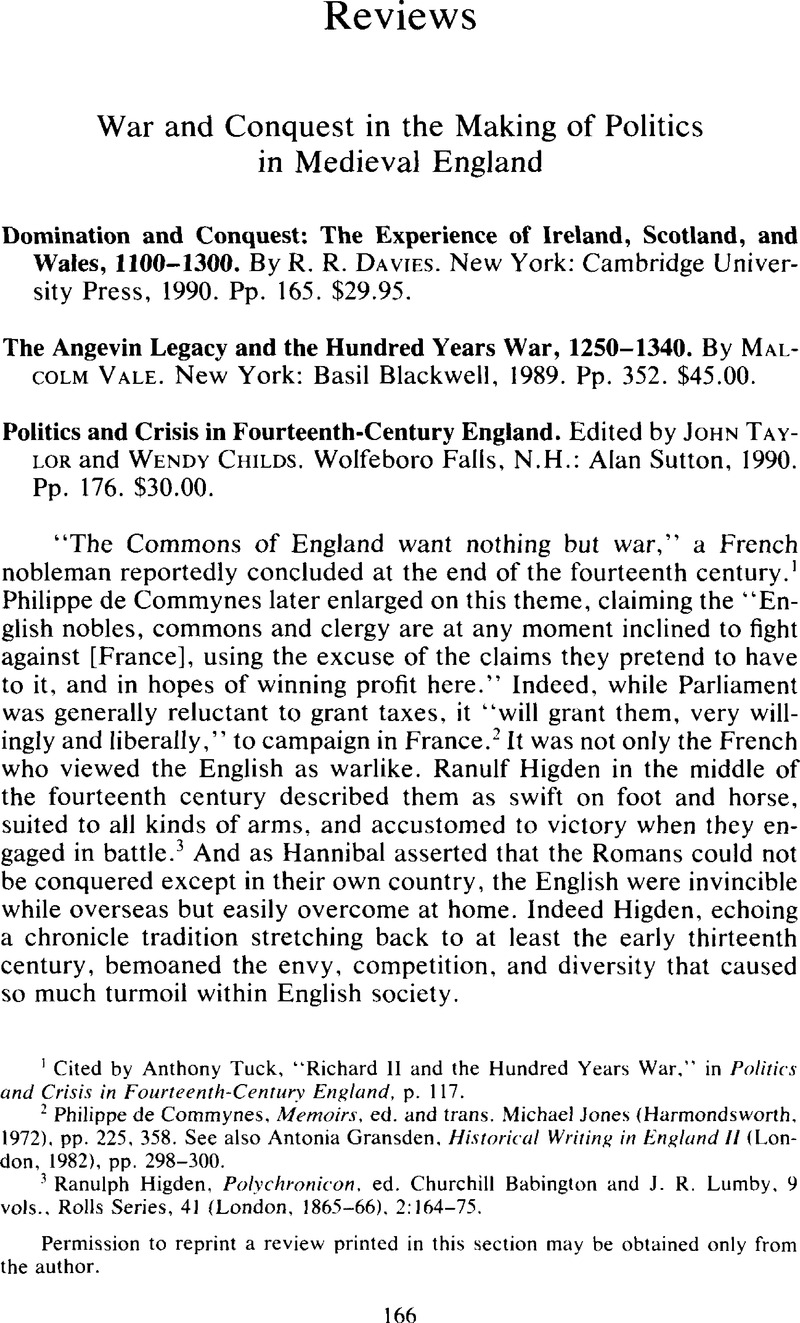No CrossRef data available.
Published online by Cambridge University Press: 10 January 2014

1 Cited by Tuck, Anthony, “Richard II and the Hundred Years War,” in Politics and Crisis in Fourteenth-Century England, p. 117Google Scholar.
2 de Commynes, Philippe, Memoirs, ed. and trans. Jones, Michael (Harmondsworth, 1972), pp. 225, 358Google Scholar. See also Gransden, Antonia, Historical Writing in England II (London, 1982), pp. 298–300Google Scholar.
3 Higden, Ranulph, Polychronicon, ed. Babington, Churchill and Lumby, J. R., 9 vols., Rolls Series, 41 (London, 1865–1866), 2:164–75Google Scholar.
4 Davies, R. R., Lordship and Society in the March of Wales, 1282–1400 (Oxford, 1978)Google Scholar.
5 For a closer view of the processes of domination in North Wales, see Given, James, State and Society in Medieval Europe: Gwynedd and Languedoc under Outside Rule (Ithaca, N.Y., 1990)Google Scholar.
6 Carpenter, D. A., The Minority of Henry III (Berkeley and Los Angeles, 1990), pp. 306–9, 311–15Google Scholar.
7 Carpenter gives an early example in Philip of Oldcoates' reluctant acceptance of the seneschalship of Poitou (ibid., pp. 200–201, 214–17).
8 Coser, Lewis A., The Functions of Social Conflict (New York, 1956), esp. pp. 76–81Google Scholar, for a discussion of the stabilizing effects of multiple conflicts and multiple group affiliations. It should be noted that Saul (p. 53) indirectly quotes Georg Simmel, on whose work Coser built his own analysis.
9 Beals, Alan and Siegel, Bernard, “Pervasive Factionalism,” American Anthropologist 62 (1960): 394–417Google Scholar.
10 Prestwich, Michael, “Parliament and the Community of the Realm in Fourteenth-Century England,” in Parliament and Community, ed. Art Cosgrove and McGuire, J. I., Irish Historical Studies, 14 (Belfast, 1983): 5–24Google Scholar.